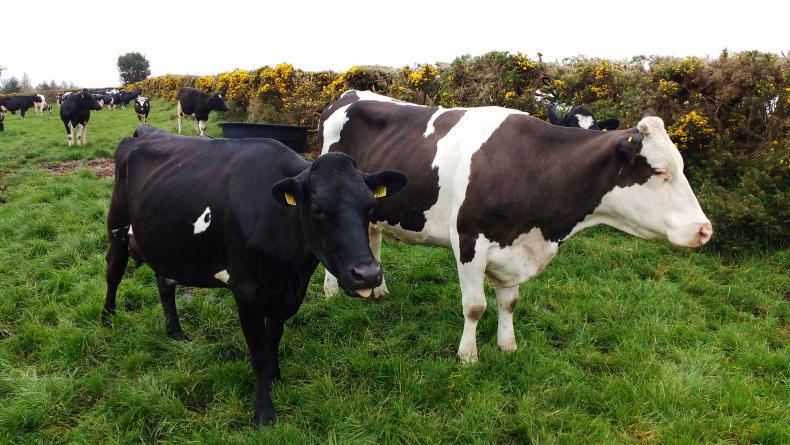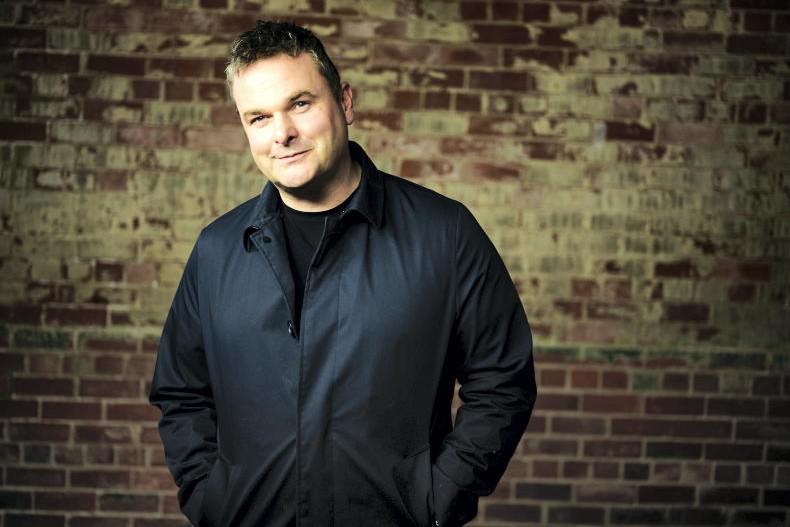The president of the Ulster Farmers’ Union (UFU) Ivor Ferguson has rejected the claim made on the BBC Newsnight programme that 45,000 Northern Ireland (NI) dairy cows could be culled in the event of a no-deal Brexit.
Speaking on the Nolan Show on BBC Radio Ulster, Ferguson described the story as “scaremongering” and “unhelpful”, and said that a cull would not happen.
The BBC did not name their sources for the story, but said that they were “senior industry figures”.
So who is right?
Plausible
On the one hand, it is hard to see a mass cull of dairy cows soon after a no-deal Brexit, but, at the same time, it is perfectly plausible that the industry in NI is forced to downsize in the medium term if the British market loses value after Brexit.
More immediately, if the UK departs without a deal, the assumption is that the EU will move to protect its single market.
So the UK will be treated as a third country and will have to meet various rules, including that milk going into the EU has to go from an approved establishment (not a farm) and then on to a border inspection post (there are three in Ireland and none at the Irish border).
There are then the EU tariffs on imports, which on raw milk is 21.8c/l.
So, in effect, these tariffs and non-tariff barriers kill the cross-border trade in milk.
Immediate problem
With up to one third of NI milk (800m litres) traditionally processed in the Republic of Ireland, there is an immediate problem.
However, the majority of that cross-border milk is produced by suppliers to Lakeland Dairies, but, last year, it merged with LacPatrick, so has access to the new milk dryer at Artigarvan.
It is possible to envisage a scenario where the prices paid to dairy farmers in NI take a hit
Therefore, NI probably now just has enough capacity to process all its milk, although, of course, a breakdown would be a major problem.
Where the real issue arises is what NI does with the processed product if the EU export market is effectively cut off.
Nearly 30% of all output from the NI dairy industry is currently traded into the EU.
A significant proportion of this is powder, but it is a commodity in which the UK market is already 200% self-sufficient.
Down the tracks
The other problem coming down the tracks is the no-deal tariff plan published by the UK government in March.
It does intend applying tariffs on imports, but at about half the level of those applied by the EU.
In addition, the UK will not apply tariffs on goods moving across the Irish border, and into Britain.
If you take everything together, it is possible to envisage a scenario where the prices paid to dairy farmers in NI take a hit.
Given that current margins are already being squeezed, the industry could downsize, perhaps by 45,000 head, or potentially even more.
To prevent that being an outcome of a no-deal scenario will require government intervention, whether it is to support prices, build new processing capacity (not in powder) or incentivise exports.
That will cost money – potentially hundreds of millions – that is the real story behind no deal.
Read more
Warning over UK food shortages in event of no-deal Brexit
Cross-border agri trade to 'virtually stop' in no-deal Brexit
The president of the Ulster Farmers’ Union (UFU) Ivor Ferguson has rejected the claim made on the BBC Newsnight programme that 45,000 Northern Ireland (NI) dairy cows could be culled in the event of a no-deal Brexit.
Speaking on the Nolan Show on BBC Radio Ulster, Ferguson described the story as “scaremongering” and “unhelpful”, and said that a cull would not happen.
The BBC did not name their sources for the story, but said that they were “senior industry figures”.
So who is right?
Plausible
On the one hand, it is hard to see a mass cull of dairy cows soon after a no-deal Brexit, but, at the same time, it is perfectly plausible that the industry in NI is forced to downsize in the medium term if the British market loses value after Brexit.
More immediately, if the UK departs without a deal, the assumption is that the EU will move to protect its single market.
So the UK will be treated as a third country and will have to meet various rules, including that milk going into the EU has to go from an approved establishment (not a farm) and then on to a border inspection post (there are three in Ireland and none at the Irish border).
There are then the EU tariffs on imports, which on raw milk is 21.8c/l.
So, in effect, these tariffs and non-tariff barriers kill the cross-border trade in milk.
Immediate problem
With up to one third of NI milk (800m litres) traditionally processed in the Republic of Ireland, there is an immediate problem.
However, the majority of that cross-border milk is produced by suppliers to Lakeland Dairies, but, last year, it merged with LacPatrick, so has access to the new milk dryer at Artigarvan.
It is possible to envisage a scenario where the prices paid to dairy farmers in NI take a hit
Therefore, NI probably now just has enough capacity to process all its milk, although, of course, a breakdown would be a major problem.
Where the real issue arises is what NI does with the processed product if the EU export market is effectively cut off.
Nearly 30% of all output from the NI dairy industry is currently traded into the EU.
A significant proportion of this is powder, but it is a commodity in which the UK market is already 200% self-sufficient.
Down the tracks
The other problem coming down the tracks is the no-deal tariff plan published by the UK government in March.
It does intend applying tariffs on imports, but at about half the level of those applied by the EU.
In addition, the UK will not apply tariffs on goods moving across the Irish border, and into Britain.
If you take everything together, it is possible to envisage a scenario where the prices paid to dairy farmers in NI take a hit.
Given that current margins are already being squeezed, the industry could downsize, perhaps by 45,000 head, or potentially even more.
To prevent that being an outcome of a no-deal scenario will require government intervention, whether it is to support prices, build new processing capacity (not in powder) or incentivise exports.
That will cost money – potentially hundreds of millions – that is the real story behind no deal.
Read more
Warning over UK food shortages in event of no-deal Brexit
Cross-border agri trade to 'virtually stop' in no-deal Brexit









SHARING OPTIONS